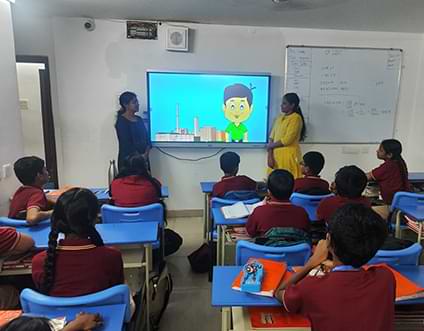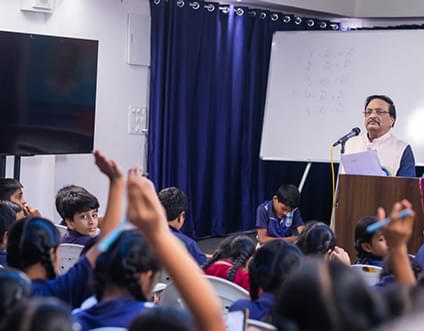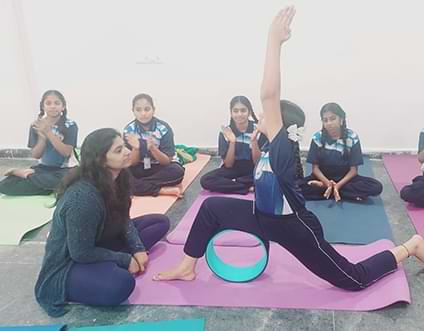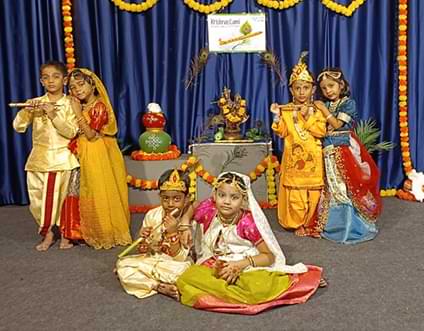


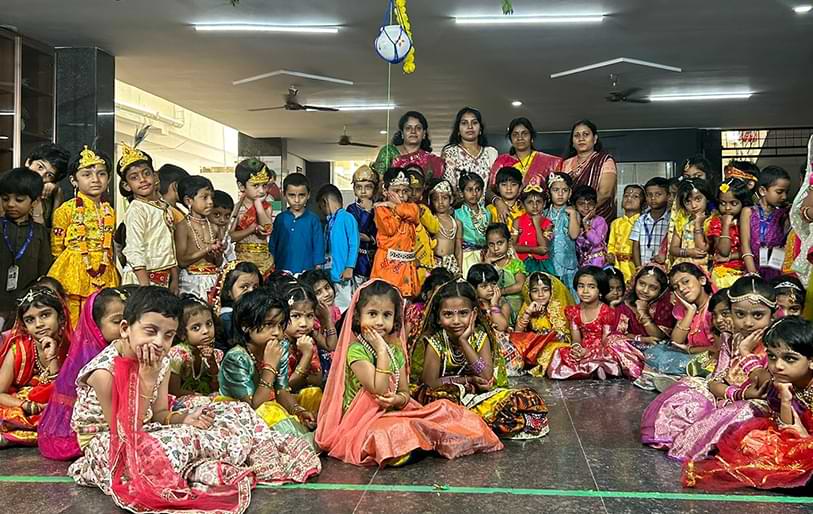

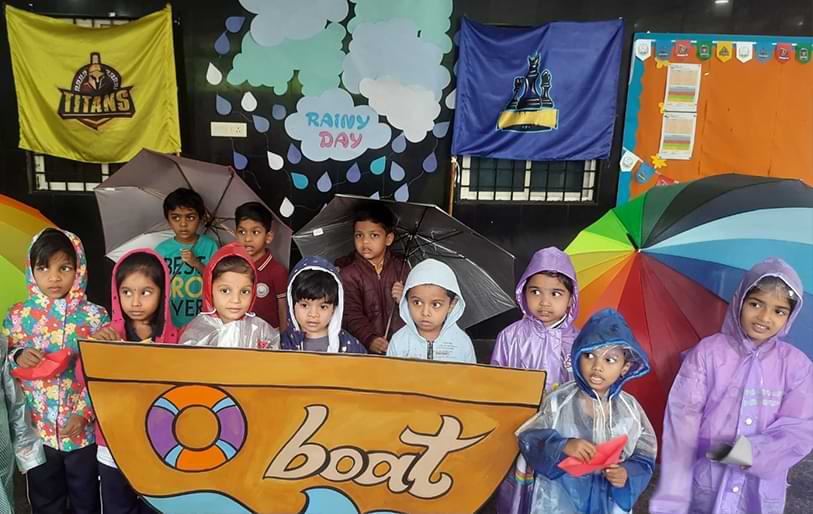
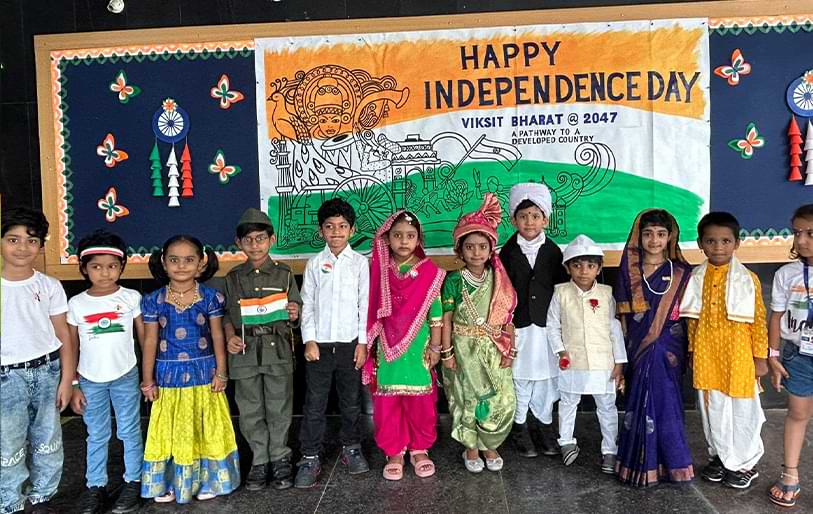

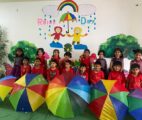
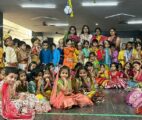

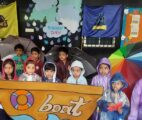


At Neo Geetanjali School, our Pre-Primary curriculum, in partnership with Caprics Learning, nurtures a love for learning through engaging experiences. We focus on balanced development across five key domains: Physical, Cognitive, Emotional, Social, and Linguistic. Key features include play-based learning, collaborative activities, and an integrated approach to subjects like language, math, and art.
We emphasize emotional and social growth, personalized learning, and cultural awareness while encouraging parental involvement. This curriculum lays a solid foundation for lifelong learning and equips children with essential skills for future success.


Educators across the world commonly use a theme-based approach. It attempts to tie in various skills and knowledge to be acquired by children into a coherent whole, organized around a specific theme, such as myself, plants, animals, fruits, vegetables, Community helpers, etc. A deliberate focus on a given topic enables even very young children to be more efficient in acquiring skills and processes required to gather and process information in later life.
Theme teaching is generally carried out according to a detailed predesigned lesson plan. Such an approach is largely teacher-directed, with very limited scope to allow child-initiated learning.
Play is not a hindrance to academic learning, nor is it lazy teaching. Purposeful play practices can be built to create deeper learning experiences that a child will ponder and adopt.
Children learn best through play. Children should engage in play activities that are relatively easy for their developmental level. In a space-based approach, the teacher makes exciting materials and activities available, and children self-select activities according to their interests at each point in time and learn at their own pace. The teacher’s role is that of a facilitator, and she does not carry out any specific structured activities. It should be free play learning.
Play stimulates curiosity and exploration and leads to excelling in body control, encourages creativity and social skills, and develops emotional balance and language skills.
